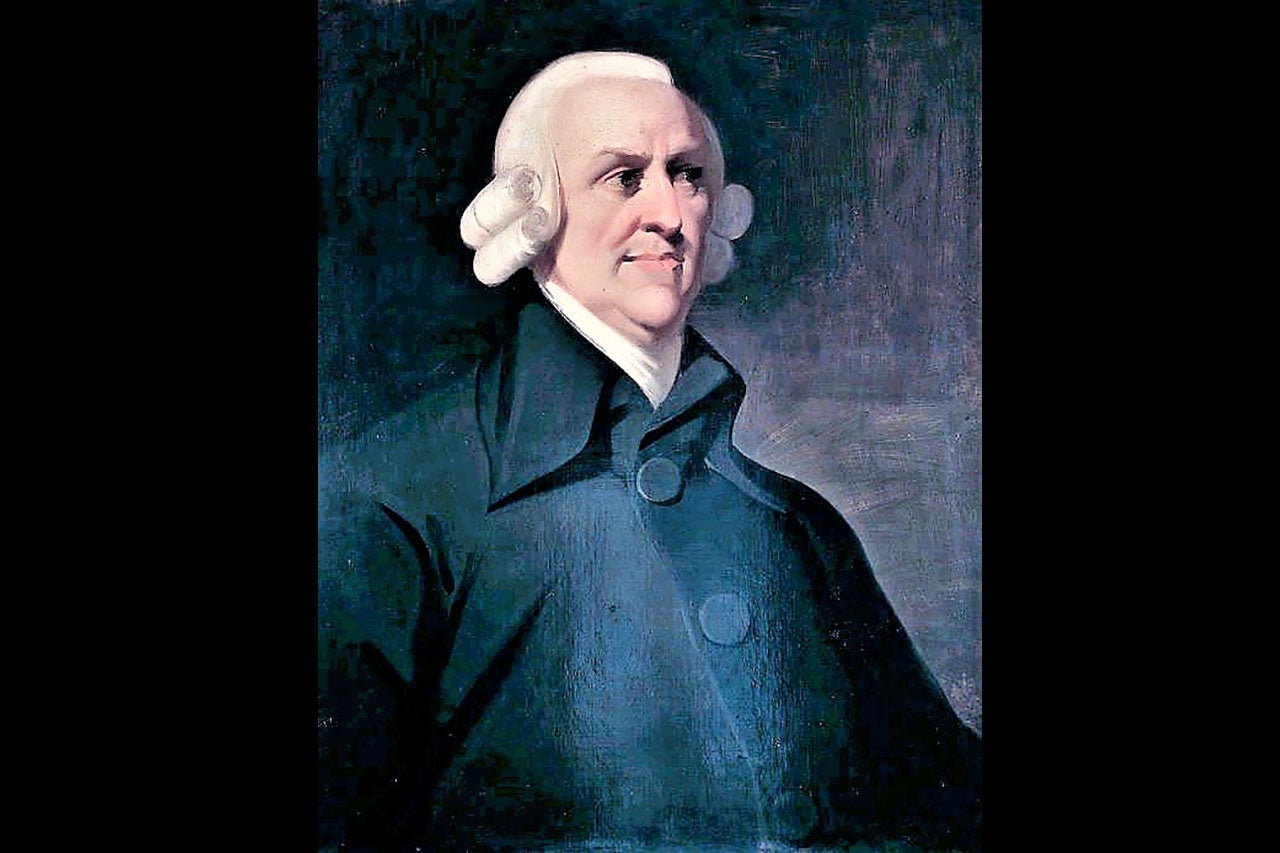If you’ve studied economics – or early U.S. history – you know the name Adam Smith. Smith’s 1776 book, An Inquiry into the Nature and Causes of the Wealth of Nations, is one of the most important works in economics.
“Adam Smith was interested in the reality of how the world works,” says Peter Calcagno, professor of economics and director of the Center for Public Choice and Market Process in the College of Charleston School of Business. “His theories were based on his observations of the world around him. He was part of an important movement, the Scottish Enlightenment, that helped establish classical liberal ideas.”
Considered the Father of Modern Economics, Smith and his work are just as relevant today as in the 18th century. That’s why the Center for Public Choice and Market Process celebrates his work every spring semester with Adam Smith Week (ASW): five straight days of educational opportunities for students, faculty and the community to explore a variety of topics related to political economy, entrepreneurship and the role of government.

Peter Calcagno, professor of economics and director of the Center for Public Choice and Market Process
“We thought it would be a great opportunity to provide events for the community as outreach, for students to gain exposure to the field of economics and to recruit students to the major,” says Calcagno. “Our mission is to make the students, faculty and community aware of the benefits of a free society and how Adam Smith’s ideas and traditions fit into our current issues, which are not that different from the issue Adam Smith addressed in his day. The week provides an intensive opportunity to gain exposure to free market ideas, and create a conversation among the community. It is a way for us to bring together all the activities of the center together for a week.”
Since its establishment in 2008, ASW has received national attention, and this year will not disappoint. The 14th annual Adam Smith Week, March 21–25, 2022, will center around the theme of diversity and inclusion.
“Given the timeliness of issues related to diversity and inclusion, we wanted to invite speakers to talk on these important topics,” says Calcagno. “Specifically, our presenters will address how markets and government allow for and prevent opportunities for diverse views and marginalized communities.”
Talks include “The Unseen Bigotry of Government Intervention,” “Unintended Consequences: How Dodd-Frank Legislation Blocked Mortgage Credit for Low Income Families and Destroyed American Dreams” and a panel discussion on social justice reform, featuring Jennifer Baker, professor of philosophy at the College of Charleston; Briana McGinnis, assistant professor of political science at the College of Charleston; and Allie Menegakis, founder and executive director of the South Carolina for Criminal Justice Reform.
Events are free and open to the public, and will be held both in person and online via Zoom. However, the final event – “Discover Economics!” – will only be offered in person. Registration is required for each virtual session
A full schedule of presentations, discussions and events is available on the ASW webpage – along with registration links.




